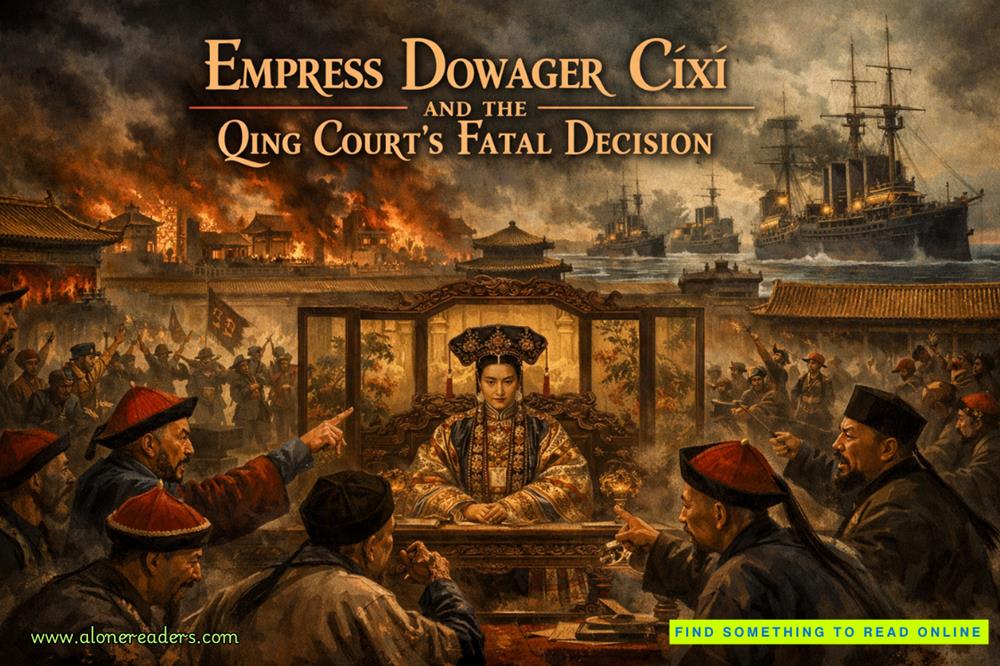“I wasn’t checking up on you—”
“I was doing a project for him. A task thatheassigned.”
“I didn’t—I wasn’t there about you, Jemmy. Only I saw Elias Beckett there already, and I couldn’t help but worry—” She was talking too much. She did that, she knew she did, and still it was difficult to stop. She wrapped her fist around her thumb, and it hurt, and she didn’t let go.
“You don’t need to worry.” Jem’s voice was taut.
“I know. I know. I—”
“And shouldn’t you have been at the pie shop at dawn?”
“Well, yes,” Cat began, and then hesitated. She had not told them about Lady Georgiana. She had not wanted them to worry—even as she herself had played out a hundred scenarios in her mind involving Geneva Desrosiers, public accusations of plagiarism, and the abrupt demise of her own career. “That is,” she amended, “no.”
“Which is it?”
“It’s—it’s—”
Pauline rose to collect their mugs, cutting off Cat’s fragmented babble. “You know,” she said as she bundled the mugsand spoons beneath her arm, “we would find you less suspicious if you would stop acting so suspicious. Jem’s right. Whatwereyou doing at Yorke’s office at dawn?”
Cat tried to arrange her face in an expression of innocence. By the crisp arch of Pauline’s left brow, she was not especially successful. “I had a meeting with Yorke. About my finances.”
“At the same time you were meant to be at the pie shop?” Jem asked skeptically.
Damn it, perhaps her brother ought to train as a trial attorney. “I am considering an alteration. To—ah—the terms of my employment.”
Now Pauline’s right brow joined the left, and she halted in her tracks on her way to the tiny kitchen. “You are thinking of quitting the pie shop?”
Cat bit her lip. She hadn’t meant to imply that—she’d meant only the contract with Laventille. She hadn’t meant to speak to Jem and Pauline of the pie shop until she was certain in her course. Until she stopped feeling so afraid.
Would she ever stop feeling so afraid?
“Yes?” she said cautiously.
Pauline’s mouth curled at the corners, and as Cat glanced at Jem to determine his reaction, she saw that he too was smiling, bright and blinding.
“Kitty!” he said. “I’m so glad for you. You cansleepnow, for heaven’s sake.”
There was something sweet in his voice, like a child with a present. As though her ease were a gift to him.
And perhaps it was. No doubt he could scarcely remember a time when she had not seethed with anxiety and desperation.
“That’s good news,” Pauline said, and though her voice was not so purely gleeful as Jem’s, she was happy too. Cat could tellit. “I’ve been begging you to quit that shop for months now. We don’t need the money.”
“I shall miss the pies, though,” Jem said. “Even though you mostly brought home the burnt ones.”
Guilt stabbed at her—the contradictory guilt one could only feel toward family. She worked too much, worried too much; she knew she ought to be happier for their sakes. And yet at the same time, all her work and worry wereforthem. To keep all of them safe.
She pressed the tip of her finger against the cut at the base of her thumb. “I was thinking of taking a trip,” she said. “For the purposes of research. Out to Wiltshire for a few days, a week at most. Do you think—”
Pauline did not let her finish. “Yes. Of course, yes. Go. We’ll manage here somehow, without your oversight and terrible washing.”
Jem emitted a dramatic adolescent sigh. “I reallywillmiss the pies. Do you think you can carry a few off with you on your last day?”
“Perhaps while Cat’s gone, you can learn to make your own,” Pauline said dryly.
“Perhaps I shall, at that.” Jem leaned forward to pluck up his book from the floor. “I wonder if Mr. Yorke has a book on pastry in his office.”
Cat looked at her brother for a long moment as Pauline disappeared into the kitchen. His head was already bent back down over the book, and he chewed aimlessly on the end of a pencil.















